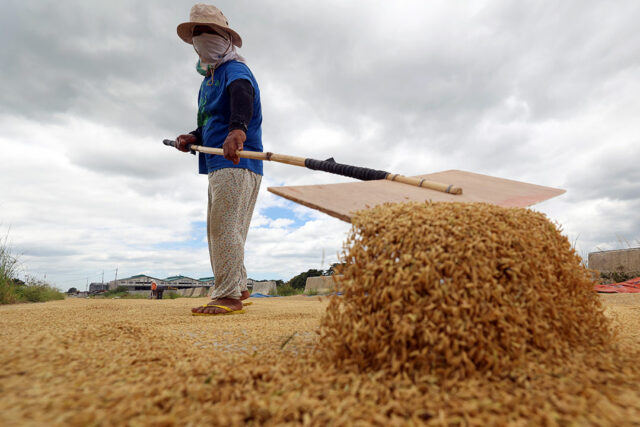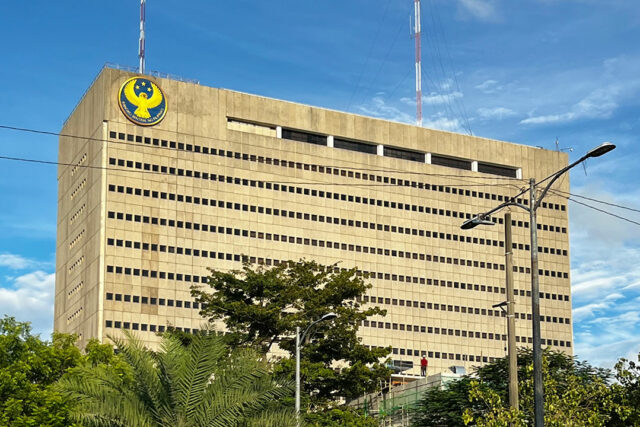After the Alaska disappointment: 10 ways to force Putin back to the bargaining table

By James Stavridis
Vladimir Putin came to Alaska and got the red-carpet treatment, complete with a fighter-jet flyover and a warm presidential handshake. The state was an ironic location for a summit given Russia’s continuing seller’s remorse over having sold it to America in the mid-19th century. While expectations were low for a full ceasefire, most observers were hoping for at least a path to negotiations.
But as he has for months now, Putin simply continued to play rope-a-dope like a boxer in the ring, ducking both a ceasefire or even a demonstrated willingness to negotiate. A subdued President Donald Trump canceled a planned luncheon to discuss broader economic and security issues with Russia, uncharacteristically refused to take questions, and flew back to DC to ponder next steps.
Clearly, it’s going to take “severe measures,” to use Trump’s own words, to get Moscow not to just sit at the bargaining table but stay for dinner. But what measures need to be up for discussion to convince the maximalist Putin to reduce his demands? Is there a specific checklist?
Ordered in ascending amount of pain for Moscow, here are 10 options the White House, acting in concert with European allies, should strongly consider:
1. Increase the number of F-16 aircrafts to Ukraine to at least 100.
This would be triple the number of Ukrainians undergoing fighter training and provide commensurate air-to-air, air-to-ground, and electronic warfare capabilities. This should be done by a joint US-European Union task force under the direction of the supreme allied commander of NATO.
2. Quadruple the number of long-range, surface-to-surface weapons provided to Ukraine.
The US High Mobility Artillery Rocket System is the gold standard, but European defense forces also have powerful capabilities in this area. Assign this to the EU as lead, with purchases of both US and European weapons in the mix.
3. Provide highly precise targeting intelligence for these missiles to Ukraine, with a detailed focus on Russian logistics systems.
The US has spent decades studying how to reverse-engineer military logistic chains to find the critical nodes and destroy them, rendering the supply chain useless. Assign this targeting effort to a combined task force of US Transportation Command and US Strategic Command, both run by two combat commanders with deep experience.
4. Begin sharing technology and hardware of unmanned vehicles between the EU, US, and Ukraine.
Put particular emphasis on maritime unmanned systems (air, surface, and subsurface). Target the remaining ships of the Russian Black Sea Fleet. Use the US Navy’s expert Task Force 59, based in the Arabian Gulf, which has experimented with maritime unmanned warfare extensively.
5. Confiscate the $300 billion in Russian assets in Western banks, including the $10 billion in US institutions.
Then, use the money to set up a trust fund, of which the profits are applied to Ukrainian defense spending in perpetuity. Have a joint US-EU team of expert financiers manage the investment of the funds, the way that the board of directors at a large foundation does.
6. Immediately apply secondary sanctions on global purchases of Russian oil and gas.
These must be universally placed on any nation doing business, including China. Track and impound the Russian “shadow fleet” that is engaged in such activities, with an eye toward confiscating at least 10 such tankers each month.
7. Provide NATO-like security guarantees to Ukraine (but without fully bringing them formally into the alliance).
Expand NATO cooperation with every element of the Ukrainian military, especially through the NATO Centers of Excellence, e.g., NATO Cooperative Cyber Defense in Tallinn, Estonia; Air Operations in Lyon, France; and Maritime Security in Istanbul.
8. Send European military training and advisory troops into Ukraine.
Target an initial force of 5,000 experts, with self-protection capability working at all levels (with higher priority than that of tactical, front-line) with the Ukrainian military. Focus on intelligence, unmanned vehicle warfare, cybersecurity, maritime warfare, and logistics. This would be an EU military mission akin to the counter-piracy or Balkan security efforts the European’s routinely execute.
9. Plan and execute a no-fly zone over Ukraine.
It would be defensive in nature but include air assets for every NATO nation and operate under the control of the supreme allied commander of the alliance through a task force set up at Ramstein Air Base in Germany. About 100 combat aircraft, including the dedicated NATO Airborne Early Warning and Control System (E-3 Sentry) force, would help maintain the zone.
10. Formally admit Ukraine into the NATO Alliance.
Obviously, this would be a “nuclear option,” and there would be difficulty getting it through the NATO formal process. (Look at the one-year delay to admit Finland and Sweden, the ultimate no-brainers.) But as the ultimate threat to Putin, it would be powerful.
As Trump and his team consider their options to put sufficient pressure on Putin, the items on this list could be initially threatened and deployed one-by-one as necessary. And certainly, Ukraine conceding some of its territory already in Russian hands would have to be part of a final agreement. There are carrots as well as sticks to be used on Moscow, including sanctions relief and the return of their funds. But more sticks appear to be needed to get Putin to make a deal.
BLOOMBERG OPINION
James Stavridis is dean emeritus of the Fletcher School of Law and Diplomacy at Tufts University. He is on the boards of Aon, Fortinet, and Ankura Consulting Group.


















